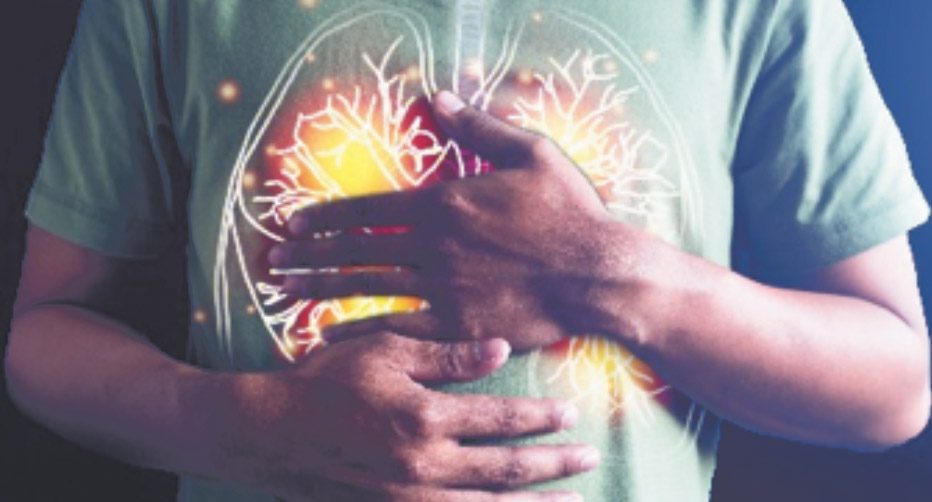A New Study on Ketamine Efficacy
 Adolescents and teens have purportedly become more depressed in recent years, but with the pandemic, the number of teens with mental health disorders has increased significantly.
Adolescents and teens have purportedly become more depressed in recent years, but with the pandemic, the number of teens with mental health disorders has increased significantly.
A new report published by the Kaiser Foundation, found the following to be true about teen mental health during the COVID-19 pandemic.
• One in three adolescents (31.9 percent) will meet the criteria for an anxiety disorder by the age of 18.
• A new poll finds many teens show signs of anxiety and depression.
• The restrictions of the pandemic have been felt across the board. For teenagers, restrictions have meant months of virtual learning, more time isolated from friends, and the canceling of important social activities like sports, school performances, graduations, and proms.
Mental health disorders are exacerbated by stress. For teens the perceived stress of their parent’s personal stress can lead to depression and anxiety. The stress of virtual learning, being away from friends and the pressures of social media have been intensified over the past year. Feelings of loneliness and despondency are the tip for the iceberg for this generation. These mental health issues are associated with both significant morbidity and mortality.
Many traditional therapeutics and drugs like SSRIs or mood stabilizers have a long list of side effects including the fact that they often stop working altogether. This is called treatment-resistance.
Ketamine in Adolescence
Although intravenous ketamine has shown efficacy in adult treatment-resistant depression, its efficacy in pediatric populations is unknown. In a recent study called, Efficacy of Intravenous Ketamine in Adolescent Treatment-Resistant Depression: A Randomized Midazolam-Controlled Trial, the authors conducted an active-placebo-controlled study of ketamine’s safety and efficacy in adolescents.
Results: A single ketamine infusion significantly reduced depressive symptoms 24 hours after infusion compared with midazolam. In secondary analyses, the treatment gains associated with ketamine appeared to remain 14 days after treatment. In this first randomized placebo-controlled clinical trial of intravenous ketamine in adolescents with depression, the findings suggest that it is well tolerated acutely and has significant short-term (2-week) efficacy in reducing depressive symptoms compared with an active placebo.
Over the past ten years, Ketamine has been studied in patients with severe depression and PTSD. A rapid instantaneous effect takes place immediately upon the drug being dispensed intravenously. When a well-trained physician administers ketamine, it can help with symptoms like moodiness, chronic pain, decreased concentration, low self-esteem, impaired sleep, decreased sexual desire, diminished appetite and can even alleviate suicidal thoughts. During the treatment, the initial infusions usually take place over approximately two weeks with six infusions that are administered every other day.
In parts of the brain that control mood and emotions, ketamine infusion creates new connections in the brain. These new neurological connections help the brain to send positive signals to the psyche, along with beneficial physical conditions to the body. The effect is notable within hours, but most patients report the results are instantaneous. These astonishing changes can be seen on brain scans and imaging, and the results are long-lasting.
Ketamine impacts mood, anxiety and alleviates pain, which can result in positive treatment outcomes for the following disorders:
• Severe or Chronic Depression
• Post-Traumatic Stress Disorder (PTSD)
• Chronic Inflammation and Pain
• Bipolar Disorder
• Obsessive Compulsive Disorder (OCD)
• Post-Partum Depression (PPD)
• Produces Rapid Onset of Neural Connections
Dr. Steven Reichbach states, “In our opinion, IV Ketamine infusions are the gold standard for patients with severe mood disorders or those suffering from chronic pain. IV ketamine provides 100% bioavailability meaning that 100% of the drug administered, gets where it needs to go (the brain). This provides easier titration and a higher likelihood for a positive response. At the end of the day, the out of pocket cost to the patient may be more than the IV infusions depending on an individual’s insurance coverage, not to mention the time convenience advantage for the patient of the IV ketamine infusions. Ketamine is a very good option for patients with severe mood disorders which have not responded to treatment modalities. Ketamine can also be extremely beneficial for certain chronic pain conditions.”
Steven Reichbach, MD, Board-Certified Anesthesiologist, specializes in pain management. For more information, please contact their office today at 941-213-4444, or visit their website at findpainrelief.com.
Source: https://pubmed.ncbi.nlm.nih.gov/33653121/
Gulf Coast Ketamine Center
2415 University Parkway, Building #3,
Suite 215, Sarasota, FL 34243
941-213-4444 | www.findpainrelief.com









